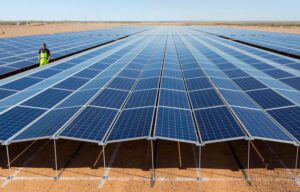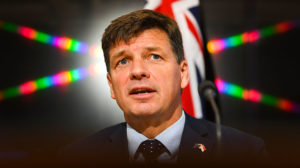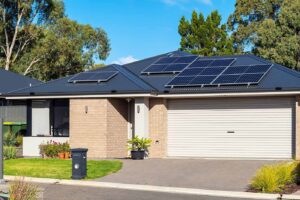The main Australian solar industry lobby group is targeting marginal seats in the federal campaign, threatening to use its influence among solar households to switch votes if necessary to push for strong solar and renewable energy policies.

Renewable energy and climate policy has taken a back seat in the first week of the federal election campaign, but the Australian Solar Council believes it can exert influence over the political debate with a reprise of its Vote Solar campaign that has had an impact in past campaigns.
Its first target is the seat of Forde in outer Brisbane, and then the nearby seat of Bonner, before moving to marginal seats elsewhere in the country.
Both Queensland seats are held by the Coalition, which is campaigning on the basis that the current renewable energy target is “more than enough”, and criticises Labor’s 50 per cent target by 2030 as “extraordinarily high”.
ASC chief executive John Grimes said a recent grass roots forum on solar in the Brisbane seat of Petrie attracted nearly 500 people. “If those people that filled the hall in Petrie were all to change the vote, that would be sufficient for the seat to change hands,” he told RenewEconomy.
“The solar industry has the potential to move votes were it matters most. The future of backbench MPs in those marginal seats ride on their leaders getting solar right.
“Cost of living is the number one issue in this campaign, and people know that one thing they can do is to install solar. This issue goes across a broad spectrum – people on fixed incomes, retirees, working families, manufacturers and disributors, environmental movements, trade unions.
“I can’t think of another issue that goes across the economic and political spectrum as solar.”
The first meeting in Forde will be held on June 15. The ASC has invited the Coalition’s Greg Hunt, Labor’s Mark Butler, The Greens’ Larissa Waters and Independent Senator Glenn Lazarus to speak at the forum, as well as the local candidates.
The Vote Solar campaign will also include a “voter scorecard” and report card on local MPs in key seats around the country.
“We are trying to achieve a positive plan for solar. We need all political parties to understand the social, environment and economic benefits of good solar policies.
Among the issues for the industry is a “fair price” for solar, particularly the feed-in tariffs which have been cut to just above the wholesale price – although there are signs of movement since Victoria’s Essential Services Commission said solar tariffs should reflect environmental benefits, and may conclude the same on network benefits.
The other key point is the long-term vision for solar and renewables in general. “The current renewable energy target does not extend beyond 2020, and that ends in 3.5 years. So we have a situation where major political parties have no policy that extends beyond 2020. That is not acceptable.”
The ASC is pushing for a minimum 50 per cent renewable energy target by 2030 – which is the level targeted by ALP, although the Greens have a much higher target of 90 per cent by that date.
“We need an overhaul of the renewable energy market, a plan to decarbonise the National Electricity Market and a path that allows the transition to a renewable energy economy, and removes the barriers put up by vested interests.”
Grimes said the ASC also wanted full funding restored for the Australian Renewable Energy Agency. It was virtually alone in criticising the Coalition when it confirmed it would remove the remaining $1.3 billion in unallocated funding from the agency.
Labor also said it would take the same approach, apart from reserving $300 million for solar thermal installations and a community energy program, although it says it may review that position.
Find the Vote Solar website here. Donations can be made here.







